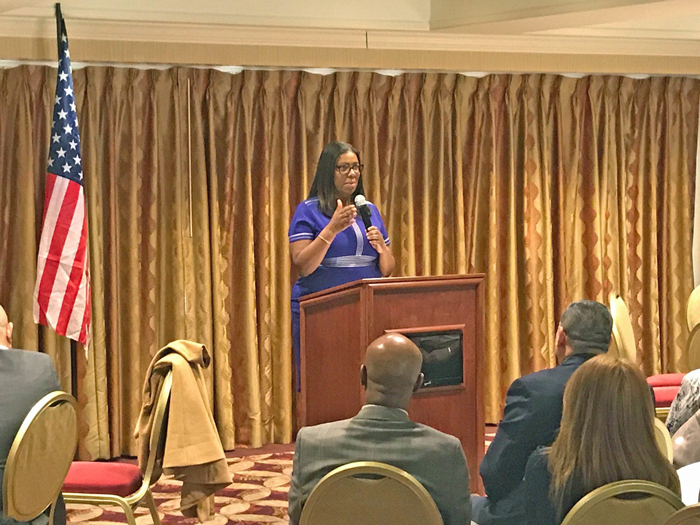Photo Courtesy of Attorney General Jmaes’s Office
New York Attorney General Tish James
By Forum Staff
For the 14th consecutive year, internet-related complaints emerged as the No. 1 complaint among New York residents, State Attorney General Tish James announced on Monday as she released the list of top 10 consumer fraud complaints received by her office in 2019.
With 4,436 complaints, the internet-related category—covering a range of issues, including internet services and service providers, data privacy and security, digital media, data breaches, and frauds through internet manipulation—far outpaced the rest of the pack. Consumer related service complaints were second on the list with 2,659 complaints, in areas such as banking, immigration services, security systems, technical repairs, and schools. Automobile sales, service, financing, and repairs ranked third with 2,510 complaints, followed by 1,910 landlord/tenant complaints, which included complaints about rent security deposits and tenant harassment. Rounding out the top five were 1,811 utility-related complaints, which included complaints about cable and satellite companies, energy services and suppliers, and wireless phone carriers.
“This top 10 list not only reflects the numerous ways in which consumers were unfortunately defrauded, cheated, and conned in 2019, but should serve as a warning sign for all consumers as we forge ahead into 2020,” James said. “Consumers who have helped identify and report issues to our office have been invaluable partners in our efforts to stop deceptive scams and will be vital in our efforts to stop fraudsters dead in their tracks going forward. My office will continue to use every tool at its disposable to protect New York consumers and enforce our laws.”
The AG also offered consumers some tips they should use to protect themselves and their families in 2020:
Internet: you receive a telephone call or a pop-up message from your internet browser indicating that your computer is infected by a virus and that you must call a number immediately, you are likely being targeted by scammers. Microsoft, Dell, Apple, and other companies almost never call or send unsolicited email messages indicating a problem with a computer. Be especially vigilant if someone asks you to pay in Bitcoin or gift cards. If you have given scammers access to your computer, uninstall any applications the scammer had you install, run antivirus software, and consider reformatting your device. While reformatting a device may be time-consuming and may involve the loss of data, it offers consumers more protection. Apply all security updates as soon as they are available and change your passwords often, James added.
Debt-relief services: Debt relief service scams target consumers by falsely promising to eliminate or otherwise reduce their debt. In some student loan debt relief schemes, the companies impersonate the federal government and promise to help students enroll in government programs that would reduce or forgive their debt. These companies may charge an up-front fee, which is illegal. Rather than paying for these expensive services, student loan borrowers can obtain these services through their student loan servicer at no charge, the attorney general noted.
For more information on the top 10 consumer frauds of 2019, visit ag.ny.gov.

